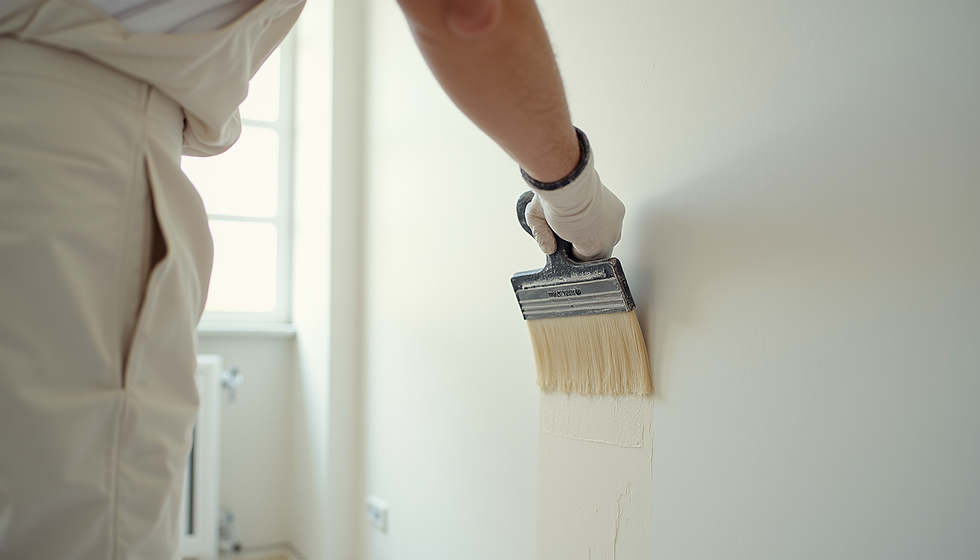Transform Your Home with a Fresh Coat of Paint
- Painting and Decorating Experts

- Oct 16, 2025
- 3 min read
Updated: Jan 8
Giving your home a fresh coat of paint is one of the fastest ways to change how it looks and feels. However, before the brushes come out, it’s smart to think about the budget. A painting project can be simple and affordable, or it can grow into something bigger, depending on the choices you make.
Here’s how you can plan your spending so the process stays smooth and stress-free.
Start with the Size of the Job
The first thing that affects cost is the size of your home or the rooms you want painted. A single bedroom is very different from an entire two-story house. Measure the walls and note the ceiling heights—this helps painters calculate how much paint and time will be needed. Larger spaces mean more paint, more hours, and usually more money.
Paint Quality Matters
Not all paint is the same. Some brands are cheaper upfront, but they may need extra coats or fade quickly. Premium paints cost more, but they often cover better and last longer. Think of it this way: paying a little more now can save you from repainting sooner. If you’re working with a professional team, ask what brands they recommend and why.
Preparation Work
A hidden part of any painting budget is the prep work. Walls may need sanding, patching, or priming before any colour goes on. Sometimes old wallpaper has to come down, or water damage needs to be fixed first. These steps take time, but they also make sure the final finish looks neat. When you’re asking for quotes, check if preparation is included or if it comes at an extra cost.
Labour Costs
Hiring professional painters can make a huge difference in quality and speed. Labour is usually the largest part of the budget, especially if the job is complex. Factors like high ceilings, detailed trims, or exterior surfaces can add to the price. That said, paying for skilled tradespeople often means the job is done right the first time, without the hassle of fixing mistakes later.
Timing and Seasons
In busy seasons like summer, demand for painters is high, and prices may reflect that. Cooler months can sometimes mean better availability and more flexible scheduling. If your project isn’t urgent, you might save by booking outside the busiest times.
Hidden Extras
It’s easy to forget about smaller costs that add up. Moving furniture, covering floors, replacing damaged timber, or dealing with tricky access areas like staircases can all stretch the budget. Talk openly with your painter about these details so there are no surprises down the track.
DIY vs Professional
Doing it yourself might look cheaper at first glance, but it often takes longer and may not give you the finish you hoped for. By the time you buy brushes, rollers, drop sheets, and ladders, the savings aren’t always as big as expected. Professional painters bring both tools and experience, which can be worth the investment if you want lasting results.
Building a Clear Budget
The best way to stay on track is to gather a few detailed quotes. Compare what’s included, from prep work to clean-up. Decide where you want to spend a little extra—like on premium paint—and where you’re happy to keep things simple. Leave some buffer room in your budget for unexpected repairs or last-minute changes.
Enjoying the Process
Painting your home doesn’t need to feel like a complicated puzzle. Once you break the budget into clear parts—like paint, labour, and timing—it all starts to make sense. A little planning now saves a lot of stress later, leaving you free to enjoy the fresh new look of your home.
Conclusion
Thinking about a fresh look for your home? Our team at Painting and Decorating Experts is here to help with your next painting project! Contact us today to get started.



